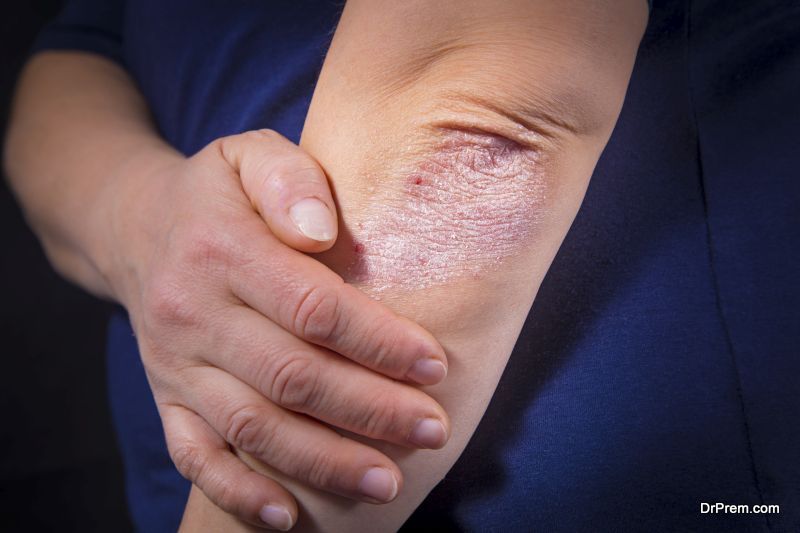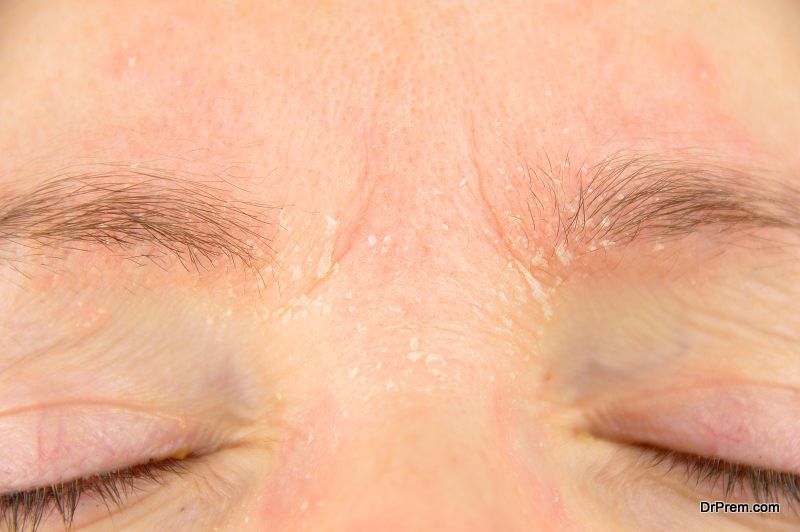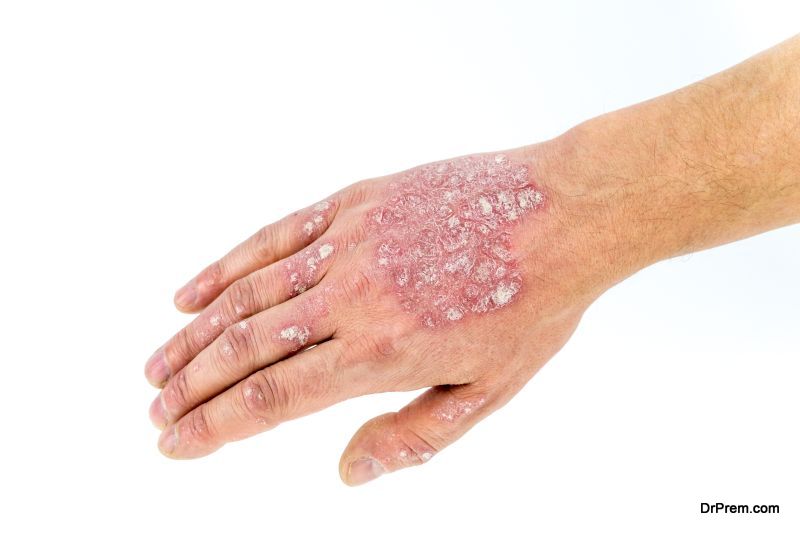Your skin is constantly regenerating. New skin cells are formed every day and the average lifespan of one skin cell is about one month. However, for those with psoriasis, an autoimmune disease, the production of those skin cells ramps up and new ones are brought to the surface before the older ones even have a chance to fall off.
This causes flaking and a pile-on of skin cells. Redness often forms around the affected area and it can be both unsightly and uncomfortable. In many cases, in fact, it can itch and cause extreme discomfort.
People who have psoriasis have their white blood cells, more specifically the B-cells, attacking normal skin cells. Then, T-cells call for more production of cytokine, which turns off a signal that limits the growth of new skin cells.
This all sounds like a lot of technical jargon, but basically if you represented those skin cells by people walking through a building and out a small doorway, you’d have to control the flow. Too many people trying to get through the door at once will cause a jam and before you know it, no one’s getting out.
When those new, healthy skin cells don’t get proper time to go through their lifecycle, it’s like a swarm of people rushing for the exit. Suddenly the new skin cells are pushing up against the older ones (even though they’re not dead yet) and you now have a pile up, or outbreak.
Sure, but what causes it?
That’s the million dollar question. Doctors and researchers understand a lot about psoriasis, but they still don’t fully know what causes it. It essentially comes down to problems with a person’s autoimmune system, related to a number of other conditions. Some of these include type 2 diabetes, inflammatory bowel disease, cardiovascular disease, and psoriatic arthritis.
Scientists have identified 25 genes that are more common among men and women with psoriasis. With more than one specific gene to develop psoriasis, they are still working to identify required genes.
Consider reading a blog about psoriasis for better clarity.
Is there anything environmental that could impact psoriasis?
Very little scientific research supports any claims that diet, exercise, or other environmental factors play a role in psoriasis. But, most patients will admit noticing a decrease in their symptoms with great focus on a healthier diet.
Article Submitted By Community Writer






